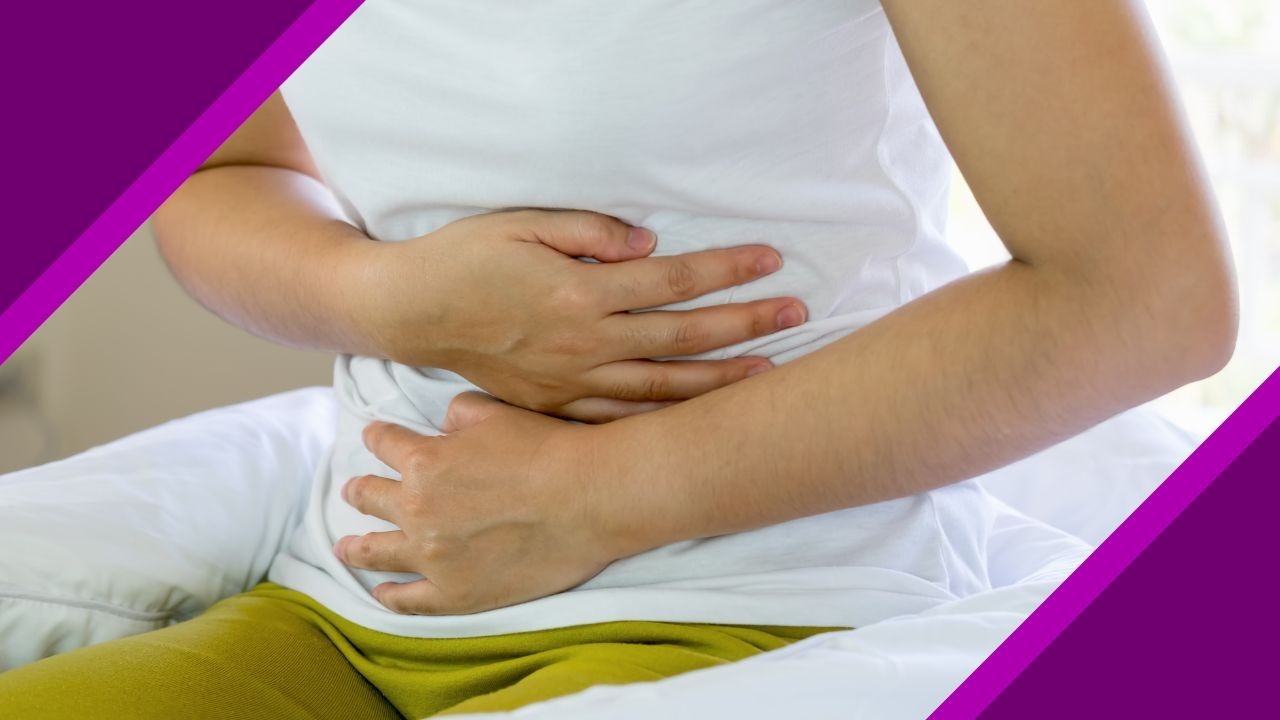
How to Improve Your Gut Health During Menopause
Aug 22, 2022Menopause can mess with your gut microbiome. Here’s how to make it better.
by Selene Yeager
As women, we’re often told to “trust our gut,” to tune into those deep-seated feelings that tell us something is not quite right. As active women out running, riding, and hitting the gym, we’re taught to “train our gut,” so our bodies can best use the fuel they need. Now science shows we should go one step further and prioritize gut health — specifically our gut microbiome (the community of organisms that live in our GI tract) — the way we do our heart, lungs, and brain because it has such a profound impact on our overall health and performance.
In fact, an article in the British Medical Journal (BMJ), concluded that with approximately 100 trillion micro-organisms living in the human gastrointestinal tract that encode over 3,000,000 of our genes, the microbiome is now “best thought of as a virtual organ of the body.”
That “organ” is not only key to our digestion (which is important, of course), but also plays a role in our immunity, metabolism, inflammation, mood, cognition, and performance. And no surprise here, it can be impacted by the hormonal fluctuations of menopause.
The Benefits of a Healthy Gut Microbiome
Obviously, the gut microbiome is involved in digestion, which helps you get the nutrients you need. But it not only helps metabolize nutrients, but also creates them, says Gennev's Director of Health Coaching and Dietitian, Stasi Kasianchuk, RD, CSSD, EP-C, CSCS, who gave us a deep dive on the gut microbiome in Episode 27 of Hit Play Not Pause: Guts & Glory.
“Nutrients like B vitamins, which are important for energy metabolism, and vitamin K, which is important for bone and blood health, are produced by bacteria in the gut,” she explained. (You still need them from your diet, of course, but the gut bacteria play an essential role in the production process.) The microbiome also helps keep your intestines intact.
But that’s just the beginning. Here’s a snapshot of some of the essential roles this “virtual organ” performs:
Inflammation management. “When we’re working out and exercising, we’re creating inflammation,” explains Kasianchuk. “We want that to happen. It helps our body become familiar with and learn how to handle inflammation, so it becomes more resilient. The gut is an important part of that process.”
Immunity. A healthy microbiota boosts your immune system and prevents disease carriers from thriving.
Mental wellness. There are many connections between the gut and the brain — a.k.a. the gut-brain axis — linking the emotional and cognitive centers of the brain with peripheral intestinal functions (giving new weight to those “gut feelings”). This gut-brain communication is thought to help maintain gastrointestinal health, but also higher cognitive functions. Certain bacteria in your gut can help produce the chemical messengers in your brain called neurotransmitters. One of the key ones produced in the gut is serotonin, which as you know, helps regulate anxiety, happiness, and mood.
Estrogen regulation. The gut microbiome is one of the main regulators of circulating estrogen. That’s important during this time of life.
Body composition. Your gut microbiota is mostly composed of two dominant bacterial divisions: Firmicutes and Bacteroidetes. These bacteria affect our weight because they regulate how much energy we absorb. Firmicutes absorb more (you’re getting more calories from food); Bacteroidetes absorb less. Research shows that Firmicutes-dominant gut microbiomes are associated with increases in inflammation, weight gain, and associated chronic diseases. Having a Bacteroidetes-dominant gut, on the other hand, is associated with having a leaner body composition.
Exercise performance. Research shows that a healthy gut biome can boost your metabolism, energy availability during exercise, and recovery after a workout.
Sleep quality. Research also suggests that the gut microbiome can influence sleep quality. One study found that total microbiome diversity was positively correlated with increased sleep efficiency and total sleep time, and was negatively correlated with nighttime waking.
Menopause and the Gut Microbiome
Menopause can disrupt the gut microbiome. Gut microbiome disruption contributes to many symptoms we associate with menopause. In fact, a recent study in the journal Menopause asked the question: Menopause, the gut microbiome, and weight gain: correlation or causation?
In the study, the researchers connected the dots between the microbiome’s role in energy and estrogen metabolism and menopause’s alteration of the gut microbiome, which can increase fat gain, lower metabolism, and increase insulin resistance. They suggest that maybe one way to improve metabolic health during the menopause transition is through the gut microbiome.
As the gut microbiome becomes disrupted during menopause, you not only can experience the metabolic changes and other symptoms we’ve been talking about here, but also have basic digestive woes like bloating, constipation, stomach cramps, and gas.
Building a Healthy Gut Microbiome
Most of us know the basics of gut health. Eat plenty of fiber (at least 25 grams a day, preferably 30) and break out the yogurt (more on that later) if you’ve been taking antibiotics. But here are more specific ways to help improve your gut health.
Prioritize Plants. Building your diet around a variety of plant foods like vegetables, fruit, legumes (which are fiber powerhouses), nuts, roots, shoots, grains, herbs, and spices is the best way to build a healthy gut microbiome because you automatically get lots of fiber, which feed those helpful microbes and you get the microbes that come from the soil that these plants are grown in. A 2021 landmark study published in Nature Medicine uncovered strong links between a person’s diet, their microbiome, and their health. Specifically, diets rich in healthy and plant-based foods promoted a gut microbiome that was linked to a lower risk of common chronic illnesses like diabetes and heart disease.

Eat fermented foods. Fermented foods contain probiotics, healthy bacteria that help populate your gut microbiome. Yogurt is a popular choice but be choosy. Many varieties contain a lot of added sugar, which isn’t great for your gut microbiome. Opt for simple, plain varieties like Siggi’s, Fage, and Vega (for a plant-based option). The label should always say it contains live cultures. Other good fermented foods for gut health are sauerkraut, kefir, miso, and kimchi.
Feed the good bacteria. Prebiotic foods are those that have fiber that feeds the beneficial bacteria. Common prebiotic-rich foods include barely ripe bananas, asparagus, apples, onions, garlic, leeks, oatmeal, legumes, dandelion greens, apples, chicory root, and Jerusalem artichokes. (A strange assortment for sure, but you’re sure to like something in that mix!)
Avoid artificial sweeteners. Artificial sweeteners appear to be detrimental to gut health. A study in the BMJ reports that sucralose, aspartame, and saccharin may disrupt the balance and diversity of gut microbiota.
Easy on anti-inflammatories. Exercise helps build a robust gut microbiome. Natural inflammation is a necessary part of that process. Popping “vitamin I” (a.k.a. ibuprofen) as was once popular during endurance events, is bad for gut health. Research shows that nonsteroidal anti-inflammatory drugs (NSAIDs) can directly impact the composition and function of the gut microbiota. They can lead to dysbiosis, or an imbalance of microorganisms in our microbiome. They also can lead to erosion of the protective mucosal barrier of the gut, which in turn leads to a condition called “leaky gut,” where the gut wall becomes too permeable, allowing toxins to spill from your gut into your bloodstream, which is as unhealthy as it sounds. Use them only as necessary.
Shift into “rest and digest” mode. Stress and the “fight or flight” mode it triggers can be harmful to the gut microbiome. The bacteria in your gut respond very quickly to the situation you’re in, Kasianchuk says. “If you have an emergency and you go into fight or flight mode, your microbiome changes very quickly in response to that influx of stress,” she says. But it is also resilient, so it will also return to baseline relatively quickly after the stress has passed. The problems begin when the stress sticks around and you have too much sympathetic “fight or flight” drive and not enough parasympathetic “rest and digest” drive.
“Practicing mindfulness throughout the day can improve the gut microbiome environment,” Kasianchuk says. “Where I’ve had the best luck with my menopausal clients is, after we’ve gone through all the nutrition components and how to enhance the gut environment with food, I find there’s a pivotal shift when they’ve incorporated a regular, consistent mindful practice.” Mindfulness also helps improve sleep, which in turn is also good for the gut microbiome.
Pursue testing and supplementation as needed. If you’re having persistent gut issues, a gastroenterologist or dietitian can help with testing. Kasianchuk does not recommend taking probiotic supplements as a matter of course. “The only time I use probiotic supplements is as a last resort when someone’s digestion is just not improving,” she says, explaining that we don’t know the long-term effects of taking them and they could have a similar backlash as antibiotics, where they actually throw your microbiome out of balance. The same goes for prebiotic supplements. These products are expensive, and you may not need to promote the growth of the bacteria that they are designed to feed.
Get Feisty 40+ in Your Inbox
We hate SPAM. We will never sell your information, for any reason or send you emails that suck!


